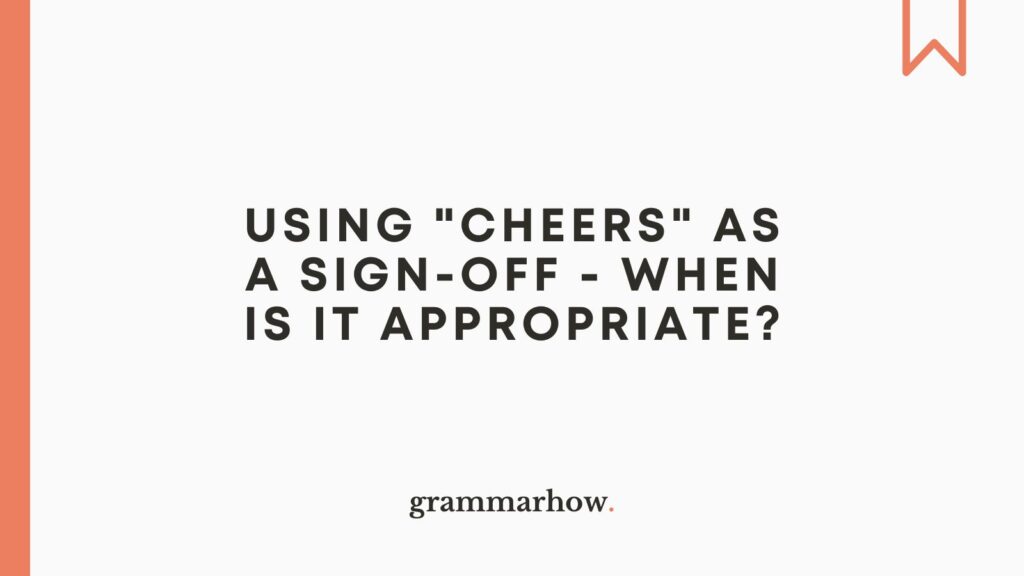Are you trying to use “cheers” as a sign-off? Of course, you might worry that it’s a little bit too informal in a business email. Luckily, that question is easy to answer.
This article will share everything you need to know about using “cheers” as a salutation.
Using “Cheers” as a Sign-Off – When Is It Appropriate?
“Cheers” is appropriate when replacing “thanks” or “have a nice day” in a formal or informal email. It’s most common for British English writers to use the phrase synonymously with “thanks.” It certainly works better informally as a closer. You should not use it as a greeting.
Here are some quick examples that will help you understand more about it:
Dear Abigail,
I’m glad you got back to me on this. I’ll let you know what else we need to do.
Cheers,
Michael Fry
Hey Gabriel,
That sounds very interesting. I’m ready to explore new options to see what we can learn.
Cheers,
Bradley
As you can see, “cheers” is a great replacement as a salutation or sign-off in an email. You will find it more in informal correspondence. However, there are still cases when it works formally (though mainly limited to British English).
You should keep reading if you want to learn more about where “cheers” comes from and when it works.
It’s much more common in British English, so it would help to know where to use it if you’re not all that familiar with British writing.
Is “Cheers” a British English Expression?
“Cheers” is predominantly a British English expression. It’s very common as a formal farewell in English letters and emails.
You won’t often find it in American English. However, American English writers will interpret “cheers” as “thank you” or “thanks” in most emails. Most American English speakers will realize they’re speaking with a British English speaker if they see “cheers” in an email.
What Does “Cheers” Mean in an Email?
“Cheers” means “thank you” and “goodbye,” though it’s more common to mean “thank you.” “Cheers” is a colloquial synonym for “thank you.”
“Thank you” is a very popular closer in emails (both formal and informal). For example:
Hey guys,
I’m glad you sent this email.
Thank you,
Paula
You can replace “thank you” with “cheers” to yield the same response:
Hey guys,
I’m glad you sent this email.
Cheers,
Paula
Since it’s correct as a formal email closer, you can also use “cheers” in a similar way to “goodbye.”
For example:
Dear all,
This is my email.
Goodbye,
Dean
Since “goodbye” sounds jarring in a formal email, you should try using “cheers” to make things sound more appealing:
Dear all,
This is my email.
Cheers,
Dean
Conclusion
“Cheers” is acceptable and appropriate as an email sign-off in British English.
American English users generally recognize it as a British English phrase. However, it’s not particularly common for American English users to write it in their emails.
You will have more luck with “cheers” informally, though it is still appropriate in formal writing.

Martin holds a Master’s degree in Finance and International Business. He has six years of experience in professional communication with clients, executives, and colleagues. Furthermore, he has teaching experience from Aarhus University. Martin has been featured as an expert in communication and teaching on Forbes and Shopify. Read more about Martin here.


